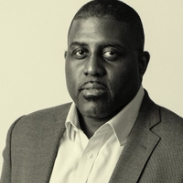 Iwaju/screenshot Iwaju/screenshotTHE FACTS Iwaju, a limited animated series, will become Disney’s first feature set in Nigeria when it airs this week on the Disney+ streaming service. Imagining a Lagos where flying cars zoom over today’s crowded street markets, the project is co-produced by Disney and Kugali media, a comics and augmented reality outfit founded in 2017 by two Nigerians, Olufikayo Adeola and Tolu Olowofoyeku, and Hamid Ibrahim, a Ugandan. It follows a pre-teen girl, Tola, played by Simisola Gbadamosi, who comes of age in Lagos. Dayo Okeniyi, 35, plays Tola’s dad. Raised in Lagos by a Nigerian father and Kenyan mother before moving to the U.S. at 15, Okeniyi’s credits include The Hunger Games, Apple TV+ series See, and Fresh on Hulu. KNOW MORE 💡What does Iwaju set out to achieve? It’s a very optimistic look at Lagos — a version of our utopia, so to speak. But it doesn’t shy away from the socio-economic gaps within our society: the haves and have nots, the island versus mainland mentalities, examining how much of our culture will remain in a hundred years given Western influences today. And though a Disney animation would be assumed to be for children, there’s a lot of subtext in this for adults to watch and walk away with more than children would. 💡How did Disney attempt to get Nigerian culture right versus things like Hollywood’s generic ‘African’ accents? They were committed to getting Nigerian actors to voice everything, as opposed to training foreign actors to do accents. You hear a mix of our different languages and colloquialisms clearly. The creators also did not want to push too far into the future where things wouldn’t feel recognizable. It was about taking iconic aspects of the Lagos landscape and pushing them ever so slightly forward, with just a sprinkling of wish fulfillment. So public transportation and traffic but you add flying cars, the kind many of us wish we could have when stuck in Lagos ‘go slow.’  Adam Hendershott Adam Hendershott💡 Disney+ is not available in Nigeria, so who’s this film for? An extremely valid question we’re still dealing with. At the time I recorded my voice for Iwaju in 2022, I knew Disney+ had a campaign to go global as quickly as possible. I think with the writers’ and actors’ strikes last year, a lot of those endeavors got pushed down the line. But, look, there’s a huge diaspora of Nigerians in America, the U.K., China, all over the world. It is a story for Nigerians being told by Nigerians, mostly recorded in Nigeria. 💡How’s the roll-out leading up to Feb. 28 going? Disney’s direction has been to highlight the Kugali creators, how Iwaju has been the fulfillment of their lifelong passion. Obviously I would have loved for them to highlight the cast a bit more; it’s an influential cast with a strong fanbase. Disney has ridden very high on excitement because Nigeria hasn’t been represented in this way and the online chatter is encouraging. But I believe they could have done more in pushing this. 💡 What’s the one thing that will boost African film for global reach? Budget. That’s my criticism of streamers that come to tell Nigerian stories, Iwaju included. There’s an unspoken thing where projects for elsewhere get significantly more than African work. I think they can give more money to finance these projects. And promote them. | 










